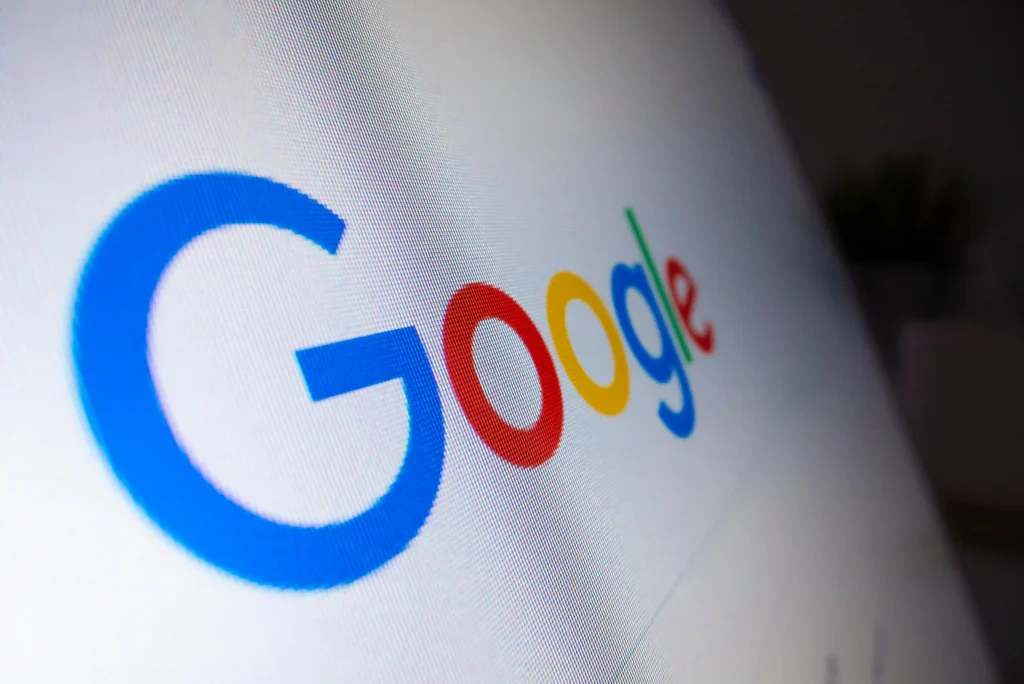What is ChatGPT?
ChatGPT is an AI chatbot that can perform various tasks, including writing essays, by following instructions. Before deciding how to use ChatGPT for content and SEO in marketing, there are several factors to consider.
The acronym GPT stands for “Generative Pre-training Transformer,” a type of language model that utilizes a transformer neural network architecture to generate text similar to human language.
ChatGPT belongs to a category of machine learning called a Large Learning Model. It is an AI system trained on massive amounts of data to predict the next word in a sentence. The more extensive the dataset it is trained on, the broader the range of tasks it can accomplish, such as creating written pieces like articles.
By following instructions, ChatGPT can write essays on various topics in any specified manner. It can conform to restrictions such as word count and the inclusion of specific topic points while writing an essay.
How does ChatGPT work?
ChatGPT uses two essential components to generate query responses: human-generated information and machine learning. The machine learning aspect, represented by the term ‘GPT’ in ChatGPT, can be seen as a digital replica of the human brain. This ‘brain’ is equipped with a vast amount of data and can express it in a conversational and human-like way.
The latest version of the GPT architecture, GPT-3, has shown remarkable proficiency in performing various language processing tasks and provides a user-friendly interface, which has led to increasing interest in ChatGPT.

The key applications of ChatGPT
ChatGPT has several practical applications that include:
- Content creation: ChatGPT can generate summaries, articles, and even books.
- Knowledge acquisition: You utilize ChatGPT to inquire about almost any topic, providing valuable answers similar to Google.
- Language translation: ChatGPT can translate text into multiple languages, such as English, Spanish, French, German, and Chinese.
- Pre-training NLP models: ChatGPT can be used to pre-train them, improving their performance on tasks like language translation, summarization, and text classification.
- Generating conversational text: ChatGPT can create text with a conversational tone, which is beneficial for creating dialogues for fictional characters or generating responses to user input in a chatbot.
- Improving language generation: ChatGPT can produce high-quality, human-like text, which is helpful for tasks like generating product or service descriptions or chatbot responses.
ChatGPT offers a wide-ranging knowledge repository and diverse techniques for making it accessible to other digital services.
How accurate is ChatGPT?
ChatGPT relies on human-generated training data, such as online discussions and published text, which means that the accuracy of its responses depends on human-generated data. One challenge in determining ChatGPT’s accuracy is more transparency regarding the training dataset. It needs to be made clear which content was utilized for training it.
It is important to note that ChatGPT’s responses rely on collective knowledge and should be fact-checked before being used. Although the accuracy of ChatGPT’s answers cannot be fully confirmed, the information it provides may need to be updated since most of the training data were collected up to 2021. As a result, any events that occurred after that year will not be included in ChatGPT’s information.

Should you use ChatGPT for SEO purposes?
A helpful strategy for leveraging an AI tool such as ChatGPT is to boost search engine optimization (SEO) by streamlining a worker’s workflow. Such exercise usually involves delegating the AI to tackle the laborious research and analysis tasks.
Incorporating ChatGPT to produce a meta description by summarizing web pages may be permissible, as this does not violate Google’s guidelines.
Employing ChatGPT to generate an outline or content brief is also a compelling use case for the tool.
However, relying solely on AI-generated content without thoroughly reviewing it for quality, accuracy, and utility may not be the most effective way to utilize AI.
AI content is detectable
There is a common belief that it is impossible for Google to distinguish between content created by humans and content generated by AI.
However, the issue of detecting machine-generated content has already been resolved to a significant extent. Even if the content utilizes anti-detection algorithms, it can still be identified.
Detecting machine-generated content has been a topic of investigation for several years, and studies have been conducted to identify content that has been translated from another language.
Does autogenerated content violate Google’s guidelines?
Google’s developer page about spam has recently undergone an update in the “auto-generated” content section. This modification, which occurred at the end of November 2022, offers a more precise understanding of what constitutes auto-generated content as spam. In its initial version, the page stated that “Automatically generated (or “auto-generated”) content is content that’s been generated programmatically without producing anything original or adding sufficient value.” However, the sentence was revised to include “spammy” to reflect that not all auto-generated content is spam. Instead, the absence of value-added components and other negative factors can result in content being identified as spam.

The implications of ChatGPT for Google
Using ChatGPT can make certain tasks more convenient compared to using a traditional search engine. You can ask a question and receive a clear and concise response. However, the downside is that you lose out on two important aspects that Google provides: transparency and diversity of results.
When you’re presented with search results in Google, you can see who’s providing the information, the website, author etc. And you also get a large variety of sources to evaluate. You can make your own mind up regarding which answer to trust and why.
For a search engine result, there’s a ‘featured snippet’ at the top which basically gives you the answer for your query. But there’s also a lot of chart history lists to look at. If you don’t trust the answer you’re given in the snippet, you can look at all the other data provided and make your own mind up.
Google also provides links to some related questions that can help you expand your search on the topic, and perhaps gain additional insights into it.
In contrast, ChatGPT only provides you with an answer with no additional context or sources, but without any distractions as well. Google has been alarmed by these trends and has been compelled to release its own AI chatbot named Google Bard.
Regardless of the timing, if Google transforms from a ‘links provider’ to a supplier of ‘digested answers’ and AI-generated content, it could have a significant impact on content creators.
The implications of ChatGPT for content creators
The emergence of ChatGPT-style tools is likely to have two major impacts on content creation.
The first is a potential reduction in costs for publications, as these tools have the ability to lessen the need for writers, translators and even coders. This could lead to publications utilizing AI tools like ChatGPT as a starting point for content creation.
Secondly, this technology can greatly speed up content production, with ChatGPT able to deliver articles instantaneously upon request. Even if content producers do not use AI tools to write entire articles, they can still be utilized to enhance the content production process, such as generating content outlines.
By requesting a structure for a blog post, for example, ChatGPT can provide a comprehensive list of key topics to cover and guidelines on how to cover them.

The limitations of ChatGPT
Inaccurate information
ChatGPT has the ability to produce essays on nearly any topic, thanks to its extensive training on various publicly available texts. Nevertheless, it is crucial to be aware of the limitations of ChatGPT before employing it for an SEO project.
The most significant constraint is that ChatGPT may not provide accurate information, as it is designed to predict the next word in a sentence or paragraph based on the previous word rather than focusing on accuracy. This should be a primary consideration for those striving to generate high-quality content.
Programmed to avoid certain kinds of content
For example, ChatGPT is specifically programmed to not generate text on the topics of graphic violence, explicit sex, and content that is harmful such as instructions on how to build an explosive device.
Unaware of current events
Another limitation is that it is not aware of any content that is created after 2021. So if your content needs to be up to date and fresh then ChatGPT in its current form may not be useful.
Has built-in biases
An important limitation to be aware of is that is trained to be helpful, truthful, and harmless.
Those aren’t just ideals; they are intentional biases that are built into the machine. It seems like the programming to be harmless makes the output avoid negativity. That’s a good thing but it also subtly changes the article from one that might ideally be neutral.
In a manner of speaking one has to take the wheel and explicitly tell ChatGPT to drive in the desired direction.
The point is that ChatGPT has biases and that one needs to be aware of how they might influence the output.
ChatGPT requires highly detailed instructions
To produce high-quality content with a distinctive perspective or originality, ChatGPT requires specific and detailed instructions. The more detailed the instructions, the more advanced the resulting output. This feature can be both a strength and a weakness.
If the request for content is vague, the resulting output is more likely to resemble that of another request. While ChatGPT selects words at random when determining the next word in an article, it avoids plagiarizing itself. However, the similarity of the resulting articles from similar requests emphasizes the limitations of merely requesting, “give me this.”
Summary
The thing with AI tools like ChatGPT is the content isn’t perfect… but it is a great start. These AI tools will save you time, but they do require human intervention. You need a human touch to make the content better or fix grammatical errors.
And with blog content, you still need to find a good way to integrate experience, expertise, authority, and trust which is what search engines are looking for if you want to rank high.
People want quality over quantity
Using ChatGPT to produce a large volume of content won’t guarantee high rankings on search engines. Although it can help target more keywords, quality content backed up by backlinks is still the key to ranking.
This illustrates that Google has become skilled at filtering out irrelevant content, whether it was created by AI or humans. Even if you use AI to create content, success in search engine rankings is not guaranteed without quality content that people link to and share.
The new AI tools can make content creation easier, but they don’t provide the uniqueness and freshness that people are looking for. AI tools dissect indexed content to create new content, which can lead to plagiarism and stale results.
However, search engines have improved over time to eliminate inaccurate results, and the same can be expected with AI-generated content. Over time, people will learn which search engines and sources of AI content they trust the most. Accuracy and relevancy matter, and Google is likely to improve the results of its AI systems in the future.
Conclusion
There’s no need to be overly concerned at the moment about how AI will harm your SEO traffic or decrease your earnings. For most websites, this is unlikely to occur.
Similarly, there’s no need to fret about increased competition resulting from the use of AI to produce content. Content creation alone is not enough to guarantee success. Instead, concentrate on providing the most value to your users through your products, services, and content, as that is the key to long-term success.



